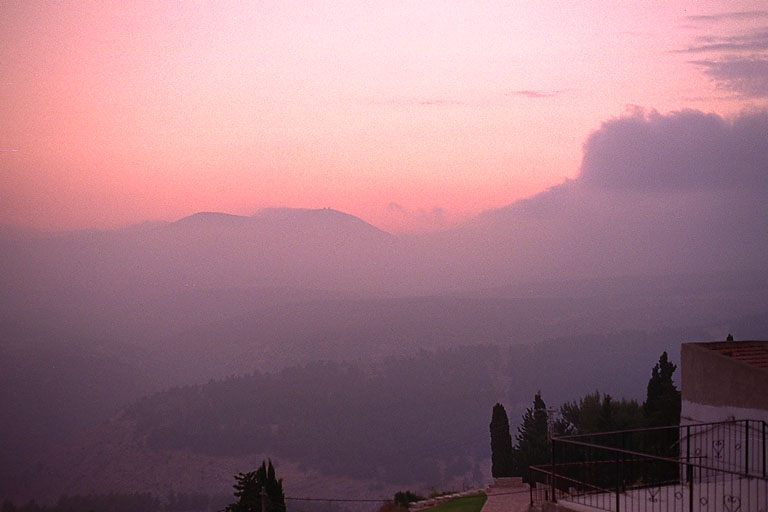You don’t have to study the Zohar to be moved by the orange-purple glow of the sun setting over the mountains surrounding Tzfat during Kabbalos Shabbos. Looking out the window of the Breslov shul, it is easy to imagine Rav Shlomo Alkabetz writing the kabbalistic words of the Lecha Dodi. The wispy clouds hanging over the mountains add to the moment. I feel an almost tangible closeness to God as I sing the words to the last stanza, "Bo'i b'shalom".
What am I to make of this? I have studied very little of the Zohar, and I am quite uncomfortable, to say the least, with many of the ARI's practices, and about visiting kevarim. I am a card carrying Modern-Orthodox Jew, for whom philosophy and logic often trumps feeling. Still, there is a certain sterility to the language of philosophy and rational approaches to religion. When God is reduced to an idea, it is hard to feel God's embrace, or to passionately engage in mitzvos like tefillah. For those of us, like myself, who seek an emotional component within our observance, and, at the same time, reject many if not all of the claims of kabbalah, what is there to do?
Too often, mysticism is confused with kabbalah, when in reality, they are not inherently connected. One can study the Zohar in a purely rational manner, and it is possible to have a mystical experience without any understanding of Sefiros and klippos. During my time in Tzfat, I felt God's presence through nature, music, the cobblestone paved streets, and the glow of a Breslover's face, as he discussed his journey from Gush to the world of Rav Nachman.
I am often moved by the insight of chassidic masters like Rav Tzadok, and Rav Nachman, even as I am unable to accept many of the concepts and claims that serve as the backdrop of their ideas. I love the experience of hisbodedus, talking to God while out in nature, even as I wonder about its efficacy.
I would contend that Modern-Orthodoxy would benefit from an infusion of mystical language, and a tolerance for experiences that allow us to feel, rather than just think. To be sure, there will be those who have no need for any experience that is anything but cerebral, but years of teaching tells me that they are in the minority. It is time to move past the conceit of thinking that everything can be grasped by the intellect and that being modern means you can't also be a little mystical.

No comments:
Post a Comment